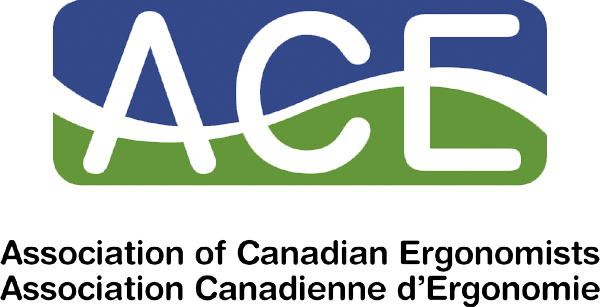This is the call for abstract submission for the 2023 Conference of the Association of Canadian Ergonomists, to be held Oct 3rd through 5th 2023 in Burlington Ontario.
The theme for the conference is Connected in Ergonomics!
1. Overview
After a few years of virtual conferences, we are excited to finally be back and connected in person with our community of Canadian Ergonomists. This year’s conference is shifting towards practical solutions in our ever-changing connected world of ergonomics and human factors. Within this theme of “connected-ness”, the conference will include keynotes, panel discussions, workshops, and research award presentations. Most of our sessions will be curated panel discussions of practitioners focusing on emerging themes in ergonomics and human factors. However, with the transition to more curated practice-based panels, the conference will continue to support high-quality research in Canada. There will be conference sessions dedicated to research and case study submissions including poster presentations and a panel session dedicated to podium presentations of graduate student research.
2. Call for Submissions
The ACE 2023 Organizing Committee welcomes your original work written in English or French. We welcome abstract submissions in the form of a 1-page abstract, with emphasis on research to practice summary statements (see template below in Section 4). All submissions will undergo peer review. Undergraduate and graduate students are invited to submit their abstract for award consideration. Undergraduate research will be presented in the form of a poster and judged during the poster session. Masters and PhD award finalists will be notified and invited to present in a podium session, all other accepted submissions will be considered for the open call for poster presentations. The four categories of abstract consideration are:
- Undergraduate Student (Research Award) – Format: Poster
- MSc / MA / Graduate Certificate Student (Research Award) – Format: Presentation
- PhD Student (Research Award) – Format: Presentation
- Open Call for Research – Format: Poster
- Case Study – Format: Poster
Please submit all abstracts by Google Forms by May 31st at the following link, please indicate which submission category you are applying to:
Click here to submit your abstract
Please use the template for abstracts available in Section 4.
3. Important Dates
Open Call for Submissions: April 3, 2023
Submission Deadline: May 20, 2023
Extended Submission Deadline: May 31, 2023
Award finalists and poster presenters by June 30, 2023
Our technical co-chairs Steve Fischer and Heather Johnston are happy to answer any questions about the submission process at @email or @email, however, all abstracts must be submitted by the link above for consideration.
4. Template for Abstracts (Research or Case Study)
Click here to download this template to fill in, then submit. See Section 2 for more information.
4.1. Length
Abstracts should be limited to 1 page or less for both research and case studies.
4.2. Problem statement / Introduction to case study
This should explain and justify your research question.
Citations should be per APA format: (Author, year), (Author 1 & Author 2, year) (Author 1, et al., year)
4.3. Research objective / Question / purpose of case study
These guidelines are intended to create consistency for all papers - please comply with all guidelines. Stay with the 1” (2.54 cm) margins, and Arial 11 font (Title is 14pt), single space, no page #s, single column layout, 1-line between paragraphs as per this template/shell.
4.4. Methodology / Context of case study
You may deviate or add to these headers if your paper requires it: e.g. for a theoretical work or case study, but please stay to the look & feel of the template/shell.
4.5. Results / Outcomes of case study
Tables should have a header line and figure titles below the figure. Please fit figures in in a way that is consistent with the look & feel of the template (e.g. within margins). There should be no hyperlinks to images etc., these must be “embedded” into the submitted file.
4.6. Discussion / Discussion of case study
Briefly interpret results, limitations, strengths, next steps etc.
4.7. Research to practice summary statement
This bullet 2–3-point summary will be translated and should capture the main point of your communication for either a research or case study abstract. Including your key findings, this part will highlight the practical component of your work and emphasize research into practice. This is the part that will be translated for the French/English speaking community so include your key findings.
4.8. References
These can be over the 1-page limit if needed
References: as required use APA format
Khalid, H.M., & Helander, M.G. (2004). A framework for effective customer needs in product design. Theoretical Issues in Ergonomics Science, 5, 27-42.
